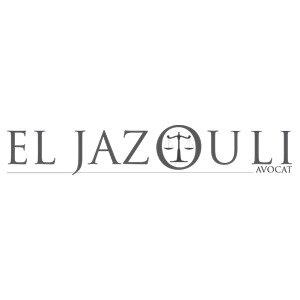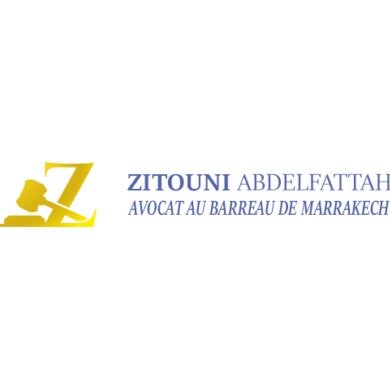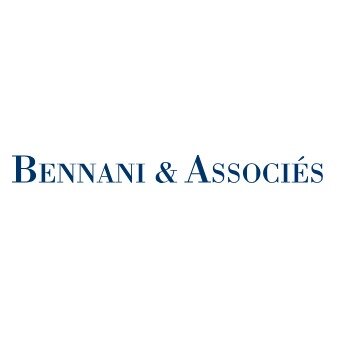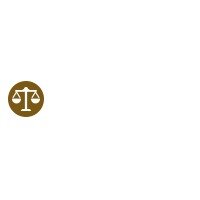Best Investment Lawyers in Morocco
Share your needs with us, get contacted by law firms.
Free. Takes 2 min.
Or refine your search by selecting a city:
List of the best lawyers in Morocco
About Investment Law in Morocco
Morocco has emerged as an attractive destination for investors due to its strategic location between Europe, Africa, and the Middle East, coupled with a stable political environment and economic reforms. The Moroccan government actively encourages foreign investment through various incentives, including tax breaks and simplified administrative procedures. Investment laws in Morocco are designed to protect investor rights and promote transparency, ensuring a conducive climate for foreign and local investors alike.
Why You May Need a Lawyer
Investing in a foreign country can be complex, and legal assistance is often required to navigate the intricate processes involved. Common situations where legal help may be necessary include:
- Understanding the legal implications of investment agreements and contracts.
- Navigating the regulatory environment and obtaining necessary permits and licenses.
- Protecting intellectual property and ensuring compliance with local laws.
- Resolving disputes that may arise during the course of investment.
- Structuring investments to optimize tax efficiency and legal compliance.
Local Laws Overview
The legal framework for investment in Morocco is governed by the Investment Charter, which sets the conditions and rights for foreign investors. Key aspects include:
- Equal treatment of foreign and domestic investors, ensuring no discrimination.
- The freedom to transfer investment-related funds abroad.
- Legal protection against nationalization and expropriation except in cases of public interest, with appropriate compensation.
- Various sector-specific laws and regulations, such as those governing real estate, energy, and agriculture, which investors must be familiar with.
Frequently Asked Questions
What types of business entities can a foreign investor establish in Morocco?
Foreign investors can establish several types of business entities, including Limited Liability Companies (SARL), Joint Stock Companies (SA), and branches of foreign corporations.
Are there any specific sectors where investment is restricted for foreigners?
While Morocco generally welcomes foreign investment, certain sectors are restricted or subject to specific conditions, particularly in areas related to national security and strategic resources.
What incentives does the Moroccan government offer to foreign investors?
The government offers incentives such as reduced corporate taxes, VAT exemptions, and subsidies for projects in priority sectors like renewable energy and automotive industries.
How does Morocco handle intellectual property rights protection?
Morocco has comprehensive laws protecting intellectual property rights, in line with international agreements. These laws cover patents, trademarks, copyrights, and trade secrets.
What is the process for resolving legal disputes related to investments in Morocco?
Disputes can be resolved through the Moroccan judicial system or international arbitration, as Morocco is a signatory to several international arbitration treaties.
What are the taxation rules on profits generated from foreign investments?
Profits from foreign investments are subject to corporate tax. However, there are often tax incentives that may reduce the effective tax rate.
Can an investor own land in Morocco?
Foreigners can purchase non-agricultural land. However, if interested in agricultural land, they typically must engage through lease agreements or with Moroccan partners.
Is there a minimum capital requirement for foreign businesses in Morocco?
The minimum capital requirement varies depending on the type of business entity. For example, there is no minimum for SARLs, but there is a 300,000 MAD minimum for SAs.
What documents are needed to start a business in Morocco?
Commonly required documents include a business plan, proof of identity, investment capital documentation, and registration forms specific to the business type.
Do foreign investors need to partner with a local company?
It is not mandatory for foreign investors to partner with a local entity unless they are investing in certain restricted sectors.
Additional Resources
For further assistance, investors may consider reaching out to the following resources:
- Moroccan Investment Development Agency (AMDIE): A key body promoting investments and providing guidance on legal and procedural aspects.
- Regional Investment Centres (CRIs): Local bodies available in each region for personalized support and administrative assistance.
- Ministry of Industry, Investment, Trade and Digital Economy: Offers insights on market conditions and investment opportunities.
Next Steps
If you need legal assistance for investment in Morocco, consider the following steps:
- Conduct initial research to understand the broad contours of the Moroccan investment climate.
- Consult with a local lawyer specializing in investment law to understand regulatory requirements and implications.
- Prepare necessary documentation and decide on the suitable business entity structure.
- Contact local resources such as the CRIs for guidance and support in setting up operations.
- Keep abreast of changes in the legal environment and update your legal counsel as required to ensure ongoing compliance.
Lawzana helps you find the best lawyers and law firms in Morocco through a curated and pre-screened list of qualified legal professionals. Our platform offers rankings and detailed profiles of attorneys and law firms, allowing you to compare based on practice areas, including Investment, experience, and client feedback.
Each profile includes a description of the firm's areas of practice, client reviews, team members and partners, year of establishment, spoken languages, office locations, contact information, social media presence, and any published articles or resources. Most firms on our platform speak English and are experienced in both local and international legal matters.
Get a quote from top-rated law firms in Morocco — quickly, securely, and without unnecessary hassle.
Disclaimer:
The information provided on this page is for general informational purposes only and does not constitute legal advice. While we strive to ensure the accuracy and relevance of the content, legal information may change over time, and interpretations of the law can vary. You should always consult with a qualified legal professional for advice specific to your situation.
We disclaim all liability for actions taken or not taken based on the content of this page. If you believe any information is incorrect or outdated, please contact us, and we will review and update it where appropriate.
Browse investment law firms by city in Morocco
Refine your search by selecting a city.

















